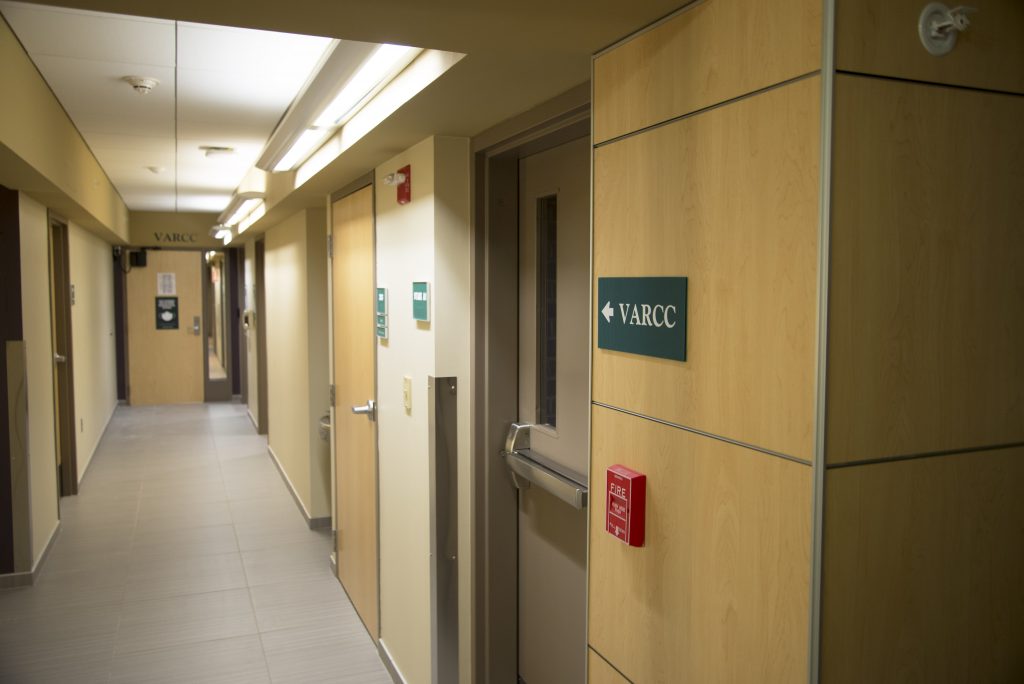After months of inquiries amid an outcry to reform Binghamton University’s Title IX practices, a new report found no “broad systemic compliance failures” within campus administrators and policies.
On March 11, the University announced that national legal firm Husch Blackwell had released their report on the University’s Title IX policies and practices, specifically toward sexual assault cases. Throughout Husch Blackwell’s 34-page report, the firm reportedly found little evidence of “negligence and unprofessionalism” by Title IX administrators, like Title IX coordinator Andrew Baker and the Office of Student Conduct (OSC). The report stated that campus practices of national Title IX policies and its Title IX Council are robust and well trained, concluding the University provides a “committed and effective response” toward sexual assault and interpersonal violence cases.
While the report held the University favorable toward sexual misconduct practices, it also found problems in specific aspects of campus administration. It reported the Office of Fraternity and Sorority Life (FSL) is often overwhelmed with COVID-19, hazing and alcohol and drug violations with its limited staff and capacity and is not formally integrated into the University’s Title IX structure. Caseloads are also an issue for the OSC, as many staffers are often stressed and drawn out with a lack of informal resolutions. Husch Blackwell also provided recommendations to the University including hiring two investigators and counselors for sexual assault cases, clarity of roles within the Title IX administrators and increased investment in sexual assault and interpersonal prevention training.
The review, according to Ryan Yarosh, senior director of media and public relations at BU, was made in response to the increase in complaints and cases reported by @shareyourstorybing, an Instagram account created last summer that anonymously published sexual assault survivors’ stories and supportive resources. Yarosh said the University has taken strides toward reform, including the creation of a Violence, Abuse and Rape Crisis Center (VARCC) in Old Johnson Hall and plans to use Husch Blackwell’s recommendations.
“[Husch Blackwell]’s review involved a review of several case files of University investigations of sexual assault complaints that they selected and that students themselves reported based on their concerns,” Yarosh wrote in an email. “[Husch Blackwell] had the opportunity to interview anyone they wished, and the University did not limit to whom they could speak. The staff who are involved with the VARCC and the Title IX Council will continue to not only work on implementing [Husch Blackwell]’s recommendations but also evaluate other opportunities for improvement.”
While the University was grateful to Husch Blackwell for their report, according to their statement, the Women’s Student Union (WSU) viewed the report as troubling and harmful, according to Elizabeth Kamerman, the WSU treasurer and a junior majoring in environmental studies. Kamerman said she believed the University’s eagerness to show the report and not the failures in support for sexual assault and rape survivors is a disservice.
“It is known through the experiences of countless students that there is negligence and unprofessionalism from administrators in the Title IX process and beyond,” Kamerman wrote in an email. “The report stated that administrators had a legal obligation to ‘act without bias’ and ‘provide appropriate due process,’ but that ‘this is a difficult balance.’ No matter the difficulty, if an administrator cannot balance acting without bias while providing appropriate due process, then they are not doing their job. Multiple student organizations, @shareyourstorybing and individual students have voiced their damaging experiences with the administration. These interactions are repeatedly unsupportive, not trauma-informed and outline the clear negligence of administrators that Husch Blackwell refused to acknowledge.”
As some issues remained unsolved on campus, Brian Rose, vice president for student affairs, said he believes the release of this report it is the first step for an important process.
“The University will remain vigilant in our efforts to improve Title IX services and programs as we develop new initiatives guided by the report recommendations and the work of those involved with the VARCC,” Rose said. “We will continue to work together to create a safe and welcoming campus community for all.”



